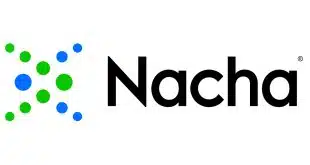Merchants increasingly are complaining about the rising cost of accepting PIN-debit transactions, once by far the cheapest payment they could process from any piece of plastic. Now, data compiled by the Federal Reserve Bank of Kansas City show why: the cost of accepting PIN-debit cards rose 305% between 1996 and 2007. Using the Kansas City Fed's numbers, Digital Transactions News has calculated that the average interchange cost for a small retailer on a $50 face-to-face purchase processed on a PIN-debit card with a major electronic funds transfer network logo in 1996 was 9.9 cents. By 2007, that same sale generated 40.1 cents in interchange. Digital Transactions News's sister publication, Digital Transactions magazine, obtained the figures while compiling a story about PIN-debit interchange for its upcoming September issue. The Kansas City Fed's data are based on information about interchange rates from 1996 into 2009 for the Star, Interlink, NYCE, Pulse, Accel/Exchange, Shazam, Jeanie, Networks, AFFN, and Maestro networks. Data for each network in every year were not available, especially for 2008 and 2009. The bank's sources included the ATM&Debit News newsletter from SourceMedia Inc., and Visa Inc. and MasterCard Inc. Executives from several of the leading EFT networks all refused Digital Transactions' interview requests, but sources told the magazine that a major driver of rising interchange is network competition for issuers' business. In the context of interchange, such competition can actually raise costs for merchants because issuers receive interchange under rates set by each network. This creates an incentive for issuers to direct their card transactions, to the extent they can, to the network that generates the most fee revenue for them. Networks technically assess the expense to merchant acquirers, which pass it on to their merchant clients. Also, over the years more EFT networks have switched from flat interchange schedules to percentage-based rates, which raises costs on larger transactions, and some have lifted once-common fee caps. Another possible reason for the increase in interchange rates is the consolidation of the EFT network industry from scores of non-profit, largely regional entities in the 1980s into just a handful of national players today, all owned by for-profit processors or payment card networks. Yet another factor some sources cited is transaction routing protocols under which many PIN-debit purchase transactions can be flowed through the network that generates the highest interchange when more than one alternative is available. PIN-debit interchange rates began their steep rise in 1999 when the Visa-owned Interlink network raised its rates, according to Fumiko Hayashi, senior economist at the Kansas City Fed. Interlink's archrival Star, now owned by First Data Corp., followed suit in 2000, and within three years all of the larger networks' rates had risen considerably. “I think the competition is the driving force,” says Hayashi, noting that she was expressing her own opinion, not that of the Kansas City Fed. Improved processing technology and the weak economy should be driving card-acceptance prices down, according to Mitch Goldstone, president and chief executive of ScanMyPhotos.com in Irvine, Calif. “The only justification is when you have an anti-competitive business model and you can illegally fix prices,” says Goldstone, the lead plaintiff in a pending class-action lawsuit against bank card interchange. “That's what it's all about.” In contrast to PIN-debit pricing, signature-debit interchange has been stable since 2005, according to Hayashi, though it is still considerably more expensive for merchants. She estimates a small retailer in a $50 card-present sale with a Visa check card would pay interchange of 66.5 cents, and 67.5 cents on an equivalent MasterCard Debit transaction.
Check Also
Affirm Expands Its Credit Reporting to TransUnion
Buy now, pay later platform Affirm Holdings Inc. early Tuesday announced it will begin credit …





